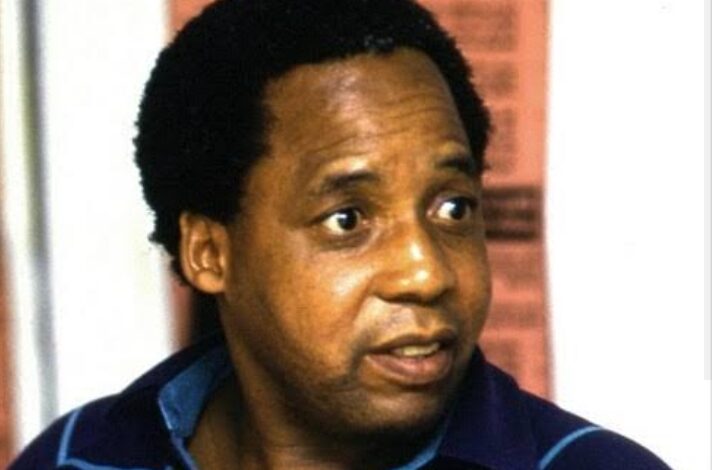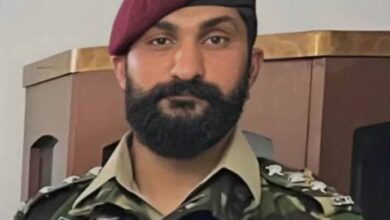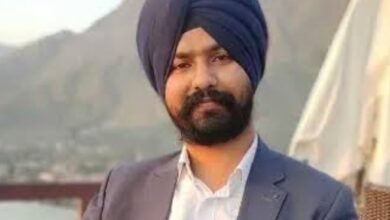Chris Hani Biography: Early Life, Education, Career, Marriage, Achievements, Age 2025

Some people live ordinary lives, but others live in such a way that their names are forever remembered. Chris Hani was one of those unforgettable people. He was not born into wealth or comfort, yet he rose to become one of South Africa’s most respected freedom fighters. He gave his life to the struggle against apartheid, a system that divided people by race and denied black South Africans their rights.
Hani was not only a soldier and a politician but also a man who deeply cared about ordinary people. He spoke for the poor, the youth, and the oppressed. His courage and honesty made him a hero in the eyes of millions. Though his life was cut short in 1993, his story still inspires those who believe in justice and equality.
This is the full life story of Chris Hani, from his childhood days in a small rural town to his role as Chief of Staff of the ANC’s armed wing, his achievements, his family, his assassination, and the legacy that lives on long after his death.
Chris Hani Early Life and Family Background
Chris Hani was born Martin Thembisile Hani on 28 June 1942 in Cofimvaba, a rural town in the Transkei region of South Africa’s Eastern Cape. He was the fifth of six children. His father, Gilbert Hani, was a migrant laborer who worked in the mines. His mother, Mary Hani, stayed at home and took care of the children.
Life was not easy for the Hani family. Apartheid policies and poverty limited opportunities for black families. Gilbert often had to travel far for work, and Mary had to manage the household with very little. Despite these struggles, they made sure their children understood the value of education, discipline, and honesty.
Chris had five siblings. Though their names are not all well-known in history, they formed a close-knit family. Growing up, Chris learned from his older brothers and sisters and also took responsibility for his younger sibling. The family environment shaped his sense of duty and courage.
Read Also: Walter Sisulu Biography: Education, Career, Marriage, Achievements, Age 2025
Education and Growing Awareness
Chris Hani’s parents believed that education was the key to a better life. He began his schooling in Cofimvaba before moving on to Lovedale High School, a respected institution that produced many African leaders. At Lovedale, Chris discovered his love for books. He enjoyed English literature, history, and Latin, and he also showed sharp intelligence and leadership skills.
After finishing high school, he went on to study at Fort Hare University, one of the most important centers of African intellectual and political life. Leaders like Nelson Mandela, Oliver Tambo, and Robert Mugabe had also studied there. At Fort Hare, Hani studied Latin, English, and Modern Languages. He graduated with a Bachelor of Arts degree.
It was at Fort Hare that his political consciousness deepened. The unfairness of apartheid was clear to him, and he was surrounded by students who also wanted change. In 1957, at only 15 years old, he had already joined the African National Congress Youth League (ANCYL). By the time he left university, he was ready to dedicate his life to the liberation struggle.
Career and Political Involvement
In 1961, Chris Hani joined Umkhonto we Sizwe (MK), meaning “Spear of the Nation.” MK was the armed wing of the African National Congress (ANC), created after peaceful protests against apartheid were violently crushed by the government. Hani knew that freedom could not be won without sacrifice.
As a member of MK, he secretly trained in guerrilla warfare. He received military training in the Soviet Union and fought in countries like Zimbabwe (then Rhodesia), Lesotho, and Zambia. His bravery in battle quickly earned him respect. He became known as a disciplined soldier and a natural leader.
One of his boldest acts was leading guerrilla units into Rhodesia to support the liberation struggle there. His courage was so great that even his enemies admitted he was a dangerous opponent.
Family Life
Despite the dangers of his political life, Chris Hani was also a family man. He married Limpho Hani, who stood by his side through all the challenges of exile, underground work, and threats. Together, they had three daughters: Lindiwe, Nomakhwezi, and Novuyo.
Family life was not always easy. Because of his involvement in the armed struggle, Chris was often away from home, living in exile or hiding from the apartheid regime. But whenever he was with his family, he was known to be loving and attentive. He enjoyed reading and storytelling with his children, showing that behind the image of a fierce soldier was a gentle father.
Rise to Leadership
During the 1970s and 1980s, Chris Hani became one of the most important leaders of the ANC and Umkhonto we Sizwe. While many ANC leaders were either imprisoned, like Nelson Mandela, or living abroad, Hani became the face of the armed struggle.
In 1969, he co-wrote the famous Hani Memorandum, which criticized corruption and poor leadership within the ANC. This was a risky move, but it showed his honesty and deep commitment to the cause. He was not afraid to speak the truth, even when it put him at odds with senior leaders.
By the late 1980s, Chris Hani had become the Chief of Staff of Umkhonto we Sizwe, the highest military position in the ANC’s armed wing. His popularity soared, especially among young people who saw him as a fearless revolutionary. Many South Africans believed he could one day become the president of the country.
Achievements and Contributions
Chris Hani achieved a lot during his lifetime, even though his life was short. Some of his key achievements include:
- Military Leadership: As Chief of Staff of Umkhonto we Sizwe, he successfully organized, trained, and led thousands of fighters in the liberation struggle.
- Youth Inspiration: He inspired countless young South Africans to join the fight against apartheid. He became known as “the hero of the youth.”
- Voice of the People: Hani was outspoken about poverty, inequality, and unemployment. He reminded fellow leaders that the struggle was not only about removing apartheid but also about building a better life for ordinary South Africans.
- Honesty in Leadership: Through the Hani Memorandum, he showed that leadership should be accountable and free from corruption.
- Peace Negotiations: In the early 1990s, when apartheid was collapsing, Hani played a vital role in peace talks, helping South Africa transition towards democracy.
Assassination and Death
On 10 April 1993, South Africa was shaken by the tragic news of Chris Hani’s death. He was assassinated outside his home in Boksburg, near Johannesburg. His killer was Janusz Waluś, a Polish immigrant and far-right extremist, acting with the help of Clive Derby-Lewis, a member of the Conservative Party of South Africa.
The plan behind the assassination was to spark a race war and stop the progress towards democracy. But instead of dividing South Africa, Hani’s death united people. Nelson Mandela went on national television and called for peace, urging South Africans not to fall into violence.
Millions mourned Chris Hani. His funeral was attended by huge crowds, making it one of the largest in South African history. He was laid to rest as a true hero of the liberation struggle.
Net Worth
Chris Hani was not a wealthy man. He lived a simple life and did not chase money or luxury. At the time of his death, his net worth was modest, similar to that of a middle-class worker. He did not own vast properties or businesses. His true wealth was in the love, respect, and admiration of the South African people, who continue to honor him to this day.
Legacy
Chris Hani’s legacy is one of courage, sacrifice, and honesty. He is remembered as one of the bravest leaders in South Africa’s history. Schools, hospitals, and streets across the country bear his name, such as the Chris Hani Baragwanath Hospital, one of the largest hospitals in the world.
Every year, on 10 April, South Africans remember his life and sacrifice. His story is taught to young generations so that they understand the cost of freedom.
Hani’s greatest legacy is the reminder that leadership is about service, not personal gain. He stood firmly for the poor, the youth, and the marginalized. Even today, when people talk about justice and fairness, Chris Hani’s name comes up as an example of what true leadership looks like.
Conclusion
Chris Hani’s life was short, only 50 years, but it was lived with purpose and passion. From a small boy in Cofimvaba to the Chief of Staff of Umkhonto we Sizwe, his journey was marked by sacrifice, honesty, and bravery. He was a family man, a soldier, a leader, and above all, a servant of his people.
His assassination in 1993 was meant to destroy hope, but instead, it strengthened the unity of South Africans. His blood watered the tree of freedom, and his memory remains a guiding light. Chris Hani may no longer walk among us, but his spirit lives on in every struggle for justice and equality.
South Africa is free today because of people like him, and his name will forever be remembered as one of the greatest heroes in the nation’s history.



